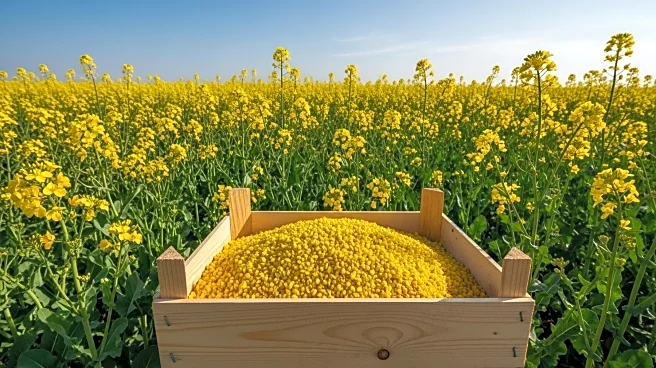What is the story about?
What's Happening?
Canada's agriculture ministers gathered in Manitoba to discuss pressing issues, including Chinese tariffs on canola. The tariffs, imposed by China, have significantly impacted Canadian canola farmers, with duties reaching 75.8% on canola seed imports. The meeting included discussions on potential responses, such as removing tariffs on Chinese electric vehicles, which may have triggered the canola tariffs. Agriculture Minister Heath MacDonald emphasized the need to assess the impact on other sectors before making decisions. The conference also covered topics like extreme drought, wildfires, and business risk management programs.
Why It's Important?
The tariffs on Canadian canola represent a substantial economic challenge, as canola seed was Manitoba's largest export to China last year, valued at $649 million. The financial strain on farmers could lead to calls for compensation and adjustments in trade policies. The situation underscores the importance of diversifying markets and enhancing business risk management strategies. The agriculture sector's response to these tariffs will be crucial in maintaining economic stability and supporting affected farmers. The discussions reflect broader trade tensions and the need for strategic diplomatic engagement with China.
What's Next?
A Canadian delegation, including Saskatchewan Premier Scott Moe, is currently in China to discuss the tariffs. The agriculture ministers' conference highlighted the need for a 'Team Canada' approach to address these challenges. Potential compensation measures for farmers are being considered, with further funding possibly on the horizon. The federal government may explore one-time payments to producers instead of relying on loans. The outcome of these discussions and negotiations will be pivotal in shaping Canada's agricultural trade policies and relations with China.















